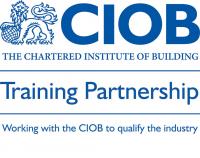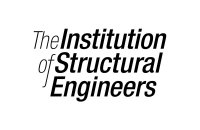It is said that concrete is the most important construction material used by Mankind. This is partly due to the huge volumes produced and also due to the unique way in which concrete changes from its fresh, wet consistence to develop into strong and long-lasting structural elements.
With the current and proposed level of infrastructure works in the UK, a full understanding of the on-site application of concrete production and the role that quality control plays is paramount to ensure a ‘right first time’ approach is achieved.
Some concrete may be purely utilitarian; some may need to be visually appealing or designed to resist aggressive environments, and so this training course is designed as an appreciation of the processes involved in making a success of every concreting operation.
This course covers the properties of concrete and its constituent materials, giving an appreciation of the factors that are essential to the successful production, use and construction of concrete. It provides the necessary sound materials basis for participants enrolling on our Concrete Specifications training course.
Also available as an online training course.
Please note the online version of this training course will be split into modules.
Aims & Objectives:
At the end of the course, participants will have received training that will enable them to:
- Define current terminology used in the context of fresh and hardened concrete
- Identify the different types of concrete produced for typical applications
- Select appropriate types of cement, aggregates, admixtures and water and recognise how these materials contribute to on-site production methods
- Select suitable consistence classes of fresh concrete for specific applications
- Be able to identify factors that can impact on durability and select appropriate methods during production to prevent early and long term deterioration
- Appreciate the equipment and methods necessary for the successful placing and compacting of concrete including preparation practices, treatment of joints and finishing
- Be able to select the most appropriate curing method based on environmental and production drivers
- Understand the principles of specifying concrete to BS8500
- Apply conformity criteria for concrete strength
- Perform pre and post quality control tests on fresh and hardened concrete
- Recognise the process for identifying and dealing with non-conforming concrete
- Identify common concrete repairs methods and materials
Course Outline:
The course covers the properties of concrete and its constituent materials, giving an appreciation of the factors that are essential to the successful production, use and construction of concrete. It provides the necessary sound materials basis for participants enrolling on the Symmons-Madge training course Concrete Specifications.
Intended For:
The course is suitable for a wide range of personnel engaged in the construction industry, particularly those responsible for on-site production, drawing up, checking or interpreting concrete specifications and whose work calls for an appreciation of concrete technology including the choice of materials, a working knowledge of relevant current Standards and correct terminology applied to concrete.
Testimonials – what our clients say...
Coastal Technician, Coastal PartnersA really informative course - a lot of information to take in, but we were kindly provided with all of the guidance documents to supplement our knowledge - thank you.
Coastal Technician, Coastal PartnersIt was really useful to learn about the potential defects associated with concrete technology, and ways to identify and mitigate against them. I often carry out inspections of concrete assets so this was really helpful.








